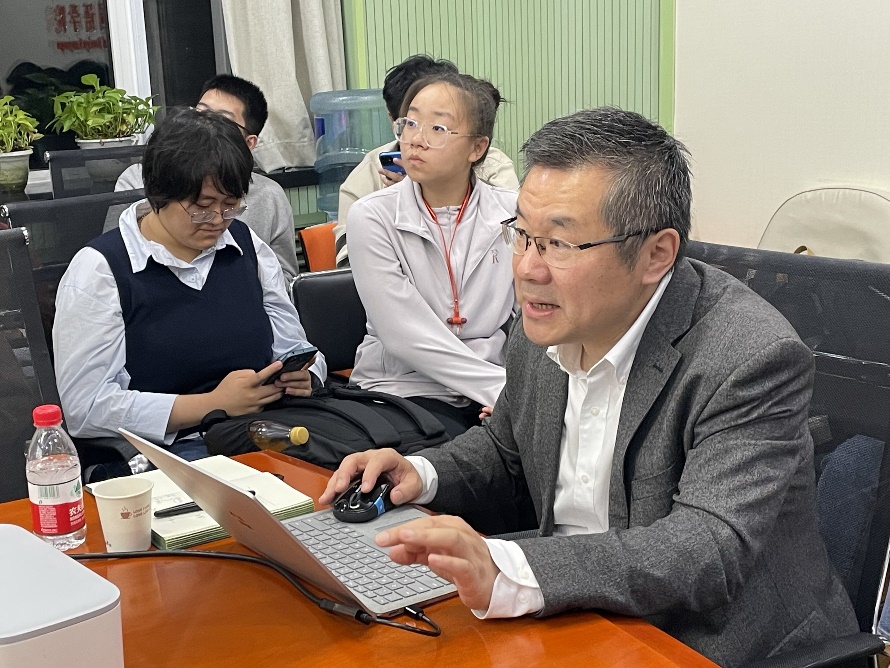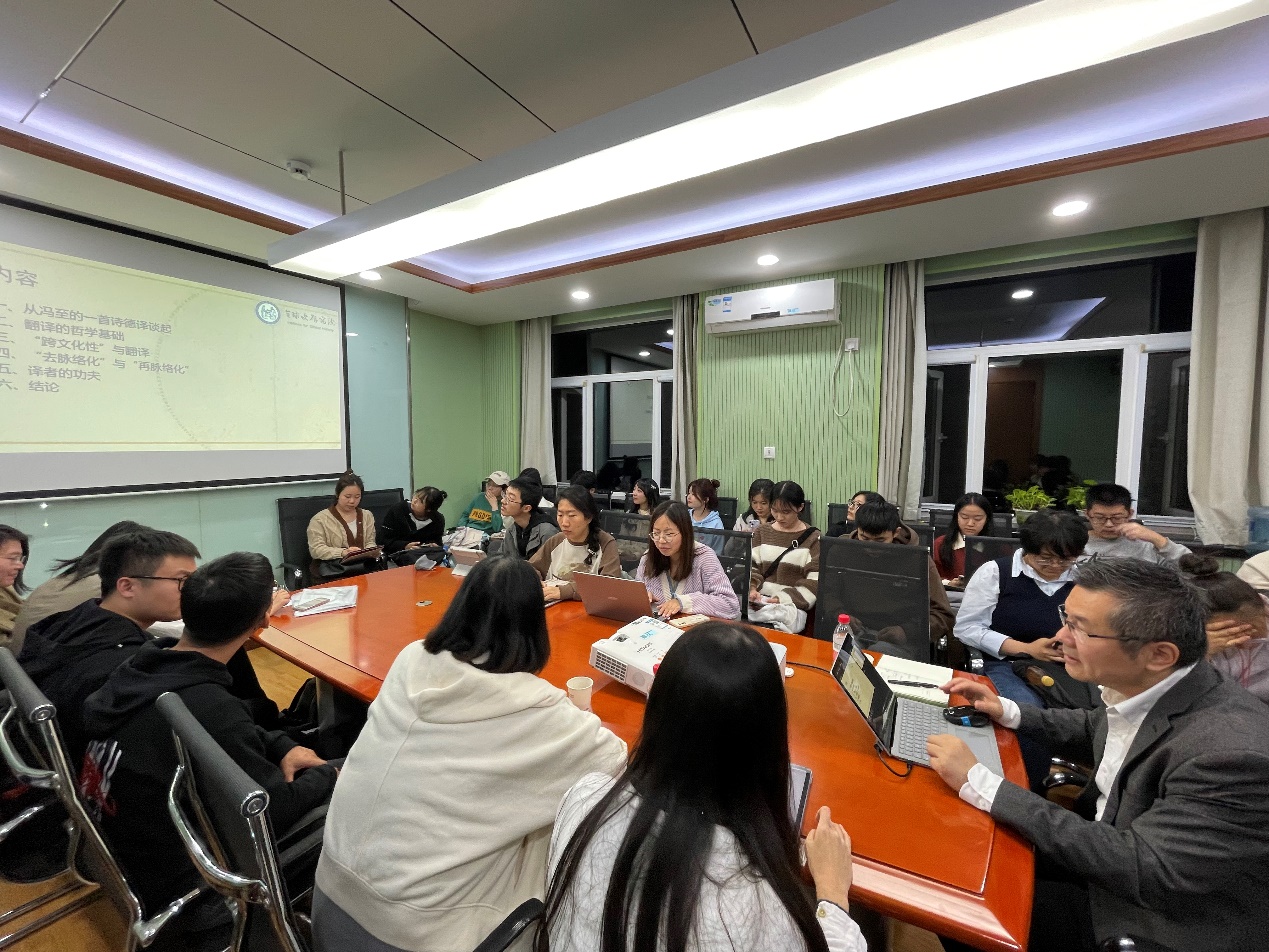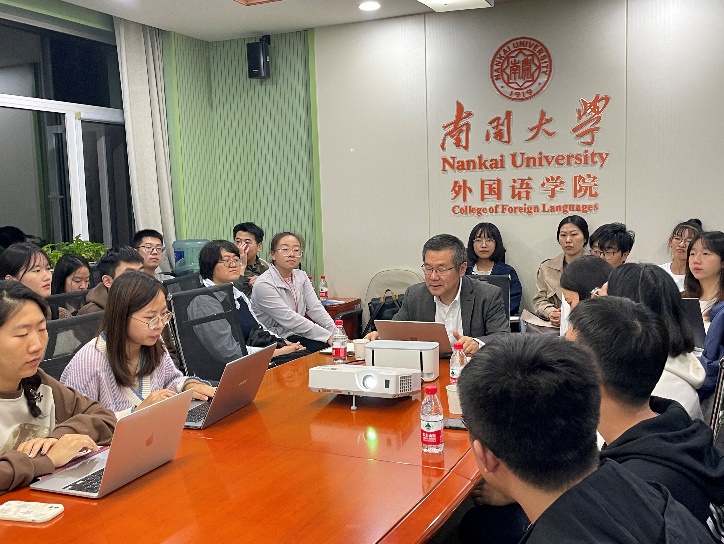On the evening of October 18, 2023, Professor Li Xuetao from Beijing Foreign Studies University, was invited by the Portuguese Department for a lecture titled “Translation and Cross-cultural Studies”. The much sought-after event was attended by many students and faculty members from the different departments.
Li Xuetao is a professor at Beijing Foreign Studies University, the University’s doctoral supervisor, and the Academician of the German National Academy of Sciences. Now, he is the Dean of the School of History and Institute for Global History of Beijing Foreign Studies University and a State Council special allowance expert. He is mainly engaged in the research of global history, the history of Sino-foreign relations and Chinese academic history and other fields.

Professor Li began with the German translation of a poem by Feng Zhi, pointing out that the fifth of the Sonnets contained an important philosophical theme in the 20th century—“communication”. Through the interpretation of its connotation, he emphasized the importance of cross-cultural and philosophical knowledge for comprehension and translation. Subsequently, Professor Li mentioned the philosophical basis of translation and introduced hermeneutics and Gadamer’s Wahrheit und Methode. He said that the historical nature of hermeneutics allowed a text to be understood and interpreted in line with the features in different eras, hence different explanations and translations are needed. In the third part, Professor Li discussed the relation between “interculturality” and translation: the converging point brought by cross-cultural identity makes mutual understanding possible, and it is interculturality that represents the characteristic of human society, rather than monoculture. Then, Professor Li introduced the concept of transculturation, using spicy stew and salad as a metaphor for the fusion and convergence of cultures. In addition, he analyzed the “decontextualization” and “recontextualization” of a text in the new context taking Mu Xi’s Six Persimmons as an example. At last, based on his experience in translating Sanskrit names of Siddhartha, Professor Li pointed out that translation should focus on the collection of original text and the translations in other languages. He also put forward the principle that a translator should strive to develop a knowledge structure and thought pattern that are closest to those of the original author.

In the final Q&A session, while answering the numerous questions from the attendees, Professor Li gave a detailed illustration of the research method of global history, the relation between history and hermeneutics, the impact of overseas missionaries in China on literateurs, and the value of archives. Professor Yan Guodong, the Dean of the College of Foreign Languages, also came to the event. He encouraged the attendees of Foreign Languages to learn from Professor Li’s lecture and work hard on their academic studies. The event was a great inspiration to the attendees and ended with their applause.




